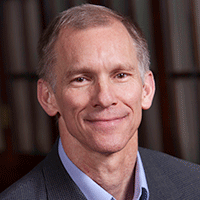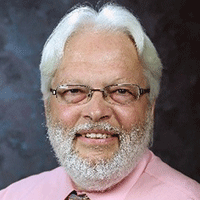SHORT COURSE: A Pragmatic Approach to Low Greenhouse Gas (GHG) IC Engines
Wednesday, October 23, 2024 | 8:00am – 12:00pm
The Westin Riverwalk, San Antonio (ICEF 2024 Conference Venue)
Registration fee: $350 USD
Subject to cancellation if the minimum number of registrations is not achieved by September 30. Contact Dr. Andrea Strzelec with any questions.
Register today!
Registration for the short course is separate from the ICEF conference registration.
You don't want to miss this inaugural learning series offered at ICEF!
The media is littered with a myriad of opinions on how global markets should achieve improved energy efficiency in the transportation sector. Don't miss the chance to learn from distinguished lecturers who will analyze the energy challenge based on fundamental science.
This short course will consist of three modules:
- Thermodynamic upper bounds of IC engines based on first principles. First and second law concepts will be used to reinforce approaches underway to improve efficiency and performance. Topics will include:
- Heat Engines versus Internal Combustion Engines
- Second Law of Thermodynamics Concepts and system entropy
- Energy is in the fuel! Fuel properties, types of combustion
- Combustion chemistry, auto-ignition, and engine knock
- Market, and societal based constraints. A rational approach to achieving sustainable mobility systems must consider the likely timelines for new resource extraction and processing, implementing new infrastructure, and the transition of the manufacturing base which currently supplies the global demand for mobility propulsion systems. Topics will include:
- Maximum efficiency derivation
- Heat release within the constraints of maximum pressure and auto-ignition
- Expansion process – lean mixtures and gamma
- Ending the expansion process
- Energy remaining in the exhaust – pumping work and system configurations
- Friction and parasitic losses
- Regulatory compliance and implications on industrial production
- Promising enabling technologies. Technologies consistent with constraints of fundamental physics and market and societal issues, and how they mesh with changes in a propulsion system's energy carrier. Topics will include:
- What will move the market? Incremental technology advancements or disruptive innovation?
- What will be the mix of ICE, Hybrids, and BEVs moving forward?
- What happens if battery cost and charging becomes on par with ICE?
Who Should Attend
The content in this intermediate course appeals to:
- Engineers,
- Upper-level engineering students,
- ICE enthusiasts
- Managers with powertrain development/analysis responsibility
Additional information forthcoming.
Instructors

David E. Foster, Ph.D.
Phil and Jean Myers Professor Emeritus
Engine Research Center
University of Wisconsin – Madison (ret.)
David E. Foster is the Phil and Jean Myers Professor Emeritus of Mechanical Engineering of the University of Wisconsin - Madison. He received his Ph.D. in Mechanical Engineering in 1979 from MIT. He was a founding member of the Engine Research Center (ERC) and served as its Director from 1994 through 1999, and from September 2008 through December 2011. He was also the Founding Co-Director of the General Motors – ERC - Collaborative Research Laboratory, from its inception in 2002 until his retirement in 2012. He has served on numerous NRC and National Academy review and assessment committees; he is an SAE Fellow and is the recipient of the Academic Contribution Award from the Japanese Society of Automotive Engineers, the UW College of Engineering Byron Bird Excellence in Research Publication Award, the ASME Honda Gold Medal, the SAE Horning Award, and the SAE John Johnson Award.

Kevin Hoag
Technical Fellow
Southwest Research Institute (SwRI)
Kevin Hoag is currently an Institute Engineer in Powertrain Engineering at the Southwest Research Institute and is now Professor Emeritus from the University of Wisconsin–Madison where he taught Engine Design and Engine Performance and Combustion since 2007. Kevin holds bachelor's and master's degrees in mechanical engineering from the University of Wisconsin. Before returning to the university, he held a variety of roles in engine combustion and thermodynamics for over 16 years at Cummins, Inc.